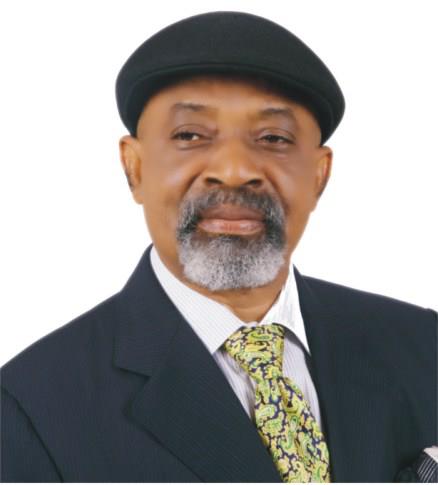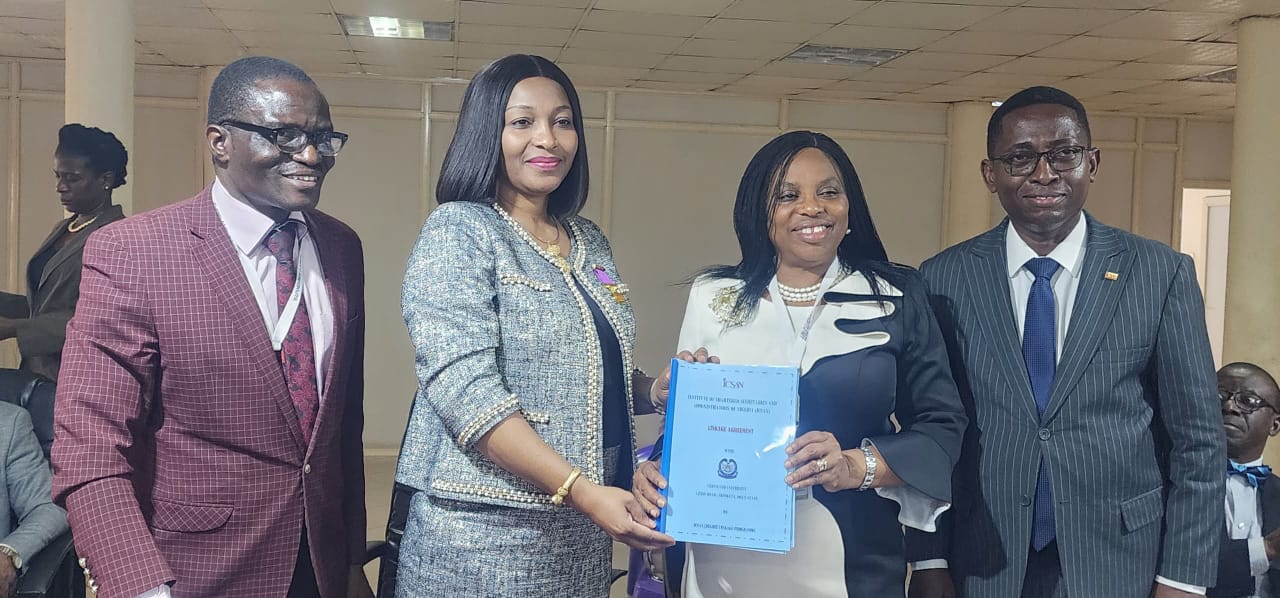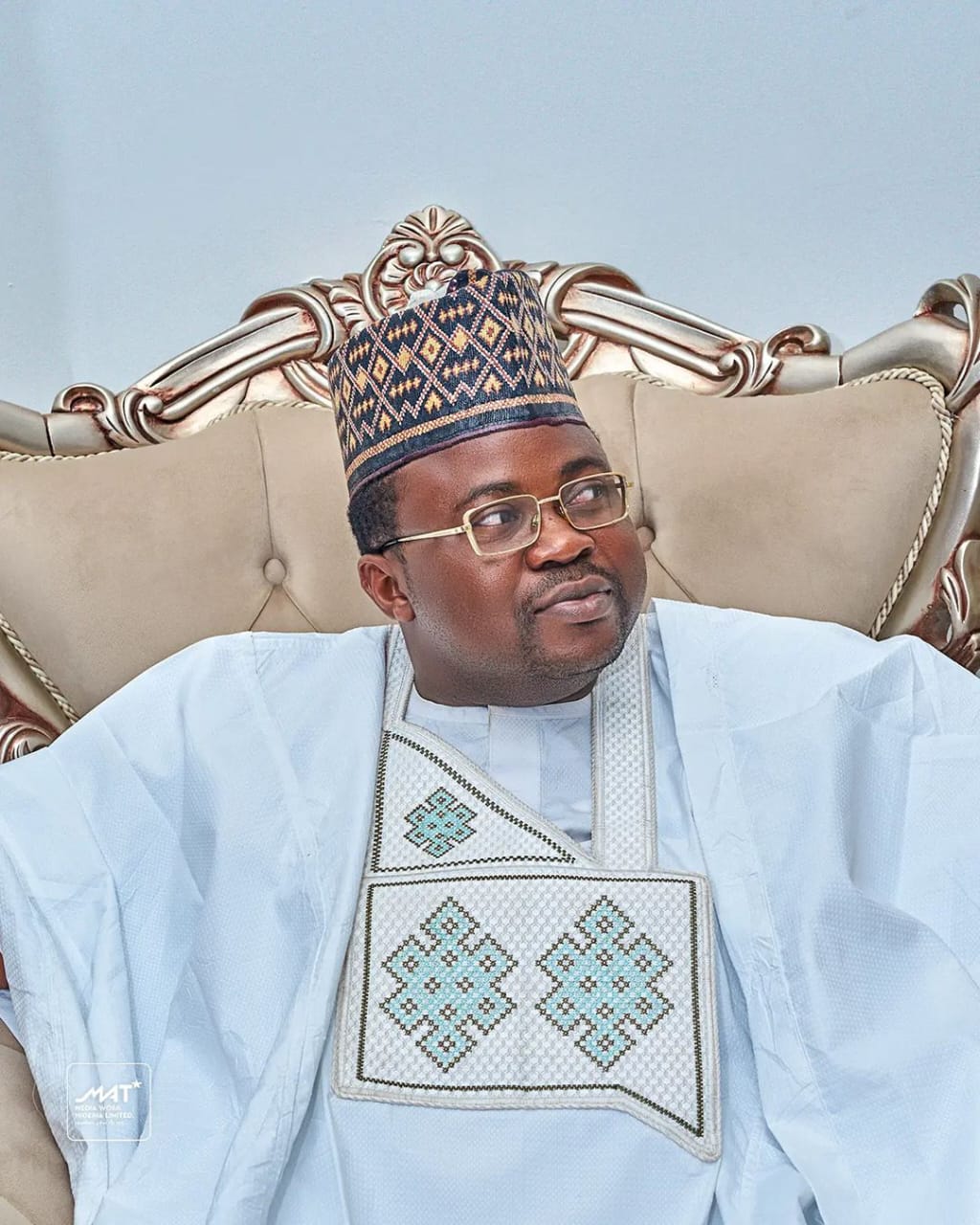WASSCE: NASS wades into controversy
The National Assembly yesterday waded into the controversy generated by the Federal Government’s plan to peg the age limit for students to write the West Africa Senior Secondary School Certificate, WASSCE, examination at 18 years.
It will be recalled that the Minister of Education, Professor Tahir Mamman, announced plans on Sunday by the federal government to set the age limit for the examination to 18 years.

This is even as the government’s decision yesterday elicited more condemnations, as former Vice President Abubakar Atiku and civil society organisations, CSOs, described it as archaic and draconian.
They also asked the government to put it on hold and call a meeting of stakeholders in the education sector to deliberate on the matter.
It’ll be subjected to public hearing — Senate
Reacting to the development yesterday, the Senate said it would subject the issue to public hearing when it comes before senators.
The Chairman, Senate Committee on Media and Public Affairs, Senator Yemi Adaramodu (APC, Ekiti South), said: “The Senate will consider, through it’s relevant committee, public views on any government policy brought to our legislative notice. Whatever is brought to the Senate for constitutional and statutory stamps shall be subjected to legislative crucible which includes public hearings.”
We haven’t been briefed — Reps
On his part, spokesman of the House of Representatives, Akin Rotimi, said the Green Chamber has no position on the matter yet, as members have not been briefed.
‘’I cannot say anything for now. When the House resumes and the matter is brought before it, it will be looked into,” he said.
However, aside from the former vice president, others who reacted included founder of Concerned Parents and Educators Network, CPE, Mrs Yinka Ogunde; the National Coordinator of Education Rights Campaign, ERC, Hassan Soweto; Resource Centre for Human Rights and Civic Education, CHRICED; and Global Rights Nigeria, among others.
They were reacting to the statement by the Minister of Education, on Sunday night that the government had pegged the age at which candidates would sit for the examination at 18 beginning from next year.
The development would also mean that such candidates would not be able to write the Unified Tertiary Matriculation Examination, UTME, conducted by the Joint Admissions and Matriculation Board, JAMB, for placement into higher institutions until they are 18, since candidates need WASSCE results to back up their admission processes.
Mamman had earlier in the year, suggested making 18 the admission age into higher institutions during a stakeholders’ meeting called by JAMB, but was opposed by most of the participants
Policy archaic, barrier to academic freedom — Atiku
Condemning government’s declaration yesterday, Atiku, who was the presidential candidate of People’s Democratic Party, PDP, in the 2023 elections, described the policy thrust as absurd and a barrier to academic freedom.
Atiku aired his thoughts in a piece, titled “Tinubu’s policy on age limit for tertiary education admission belongs in the Stone Ages,” posted on his Facebook page.
He wrote: “The recent policy of the Federal Ministry of Education pegging age limit for entry to tertiary institutions is an absurdity and a disincentive to scholarship.
“The policy runs foul of the delineation of responsibilities in a federal system of government such as we are practising, and gives a graphic impression of how the Tinubu government behaves like a lost sailor on a high sea.
“Otherwise, how is such anti-scholarship regulation the next logical step in the myriad of issues besetting our educational system?
“To be clear, the Nigerian constitution puts education in the concurrent list of schedules, in which the sub-national governments enjoy more roles above the Federal Government.
“Therefore, it is extra-constitutional for the Federal Government to legislate on education like a decree.
“The best global standard for such regulation is to allow the sub-national governments to make respective laws or rules on education.
“It is discouraging that even while announcing this obnoxious policy, the government inadvertently said it had no plan to cater for specially gifted pupils.
“The statement is an embarrassment to the body of intellectuals in the country because it portrays Nigeria as a country where gifted students are not appreciated.
“The irony here is that should the Federal Government play any role in education, it is to set up mechanisms that will identify and grant scholarships to gifted students, not minding their ages, before applying for admission into tertiary institutions.
“This controversial policy belongs in the stone ages and should be roundly condemned by everyone who believes in intellectual freedom and accessibility.”
FG should not act like a military regime —CPE
In her reaction, the founder of CPE, Mrs Yinka Ogunde, noted that the Federal Government has not considered many things before deciding on the policy.
“The Federal Ministry of Education cannot be run by making arbitrary decisions. It has created dilemmas and confusion all over the country. We need to start from the foundation. If stakeholders in the sector agreed that students should be at least 18 before seeking admission to tertiary institutions, among others, it is not something to be done by fiat.
“We will have to start from primary school where no pupil is allowed to be in primary one unless he or she is six years. Then we enforce such and if any private school defaults, the owner can be penalised and if it is a public school, the head teacher can be sanctioned too.
“But to wake up and say from next year, we would do this, is not realistic. We are not in a military regime and people should be consulted.
“If we are starting it this year, what becomes of millions of secondary school students who are not going to clock 18 before they graduate from their schools? We are not in a dictatorship and necessary consultations must be done and if we are starting now, it should be from the foundation, which is primary school,” she said.
No minimum age for marriage but education —Global Rights
Also reacting, Executive Director, Global Rights Nigeria, Abiodun Baiyewu, called on the Federal Government to review the policy.
Baiyewu said: “I think the policy needs to be reviewed, given the global competition Nigerian children will be confronted with, aside taking away their right to be self-determining, and right to development, which are fundamental human rights.
“Most advanced countries mandate that children remain in school till they turn 17 to ensure they get as much education as possible, given that in most systems, they can complete secondary education.
“In Nigeria, education is not compulsory. Nigeria has the most number of out-of-school children in the world (20 million).
“Barring children from accessing higher education till they turn 18 does not guarantee them the security of staying in secondary school till they turn 18. A break in their education might mean the end of their education.
“It is amusing that the government has a minimum age for accessing tertiary education but no minimum age for marriage!
“Thousands of girls are withdrawn from school and married off before they are equipped physically, psychologically and/or economically to contend with marriage and the responsibilities it comes with.
“Even in countries where there are minimum access age, there are exceptions for exceptionally gifted children to access tertiary education or their curriculum before they attain the minimum age.
Another retrogressive policy — ANEEJ
Executive Director, Africa Network for Environmental and Economic Justice, ANEEJ, Rev David Ugolor, disagreed with the policy, describing it as retrogressive.
Ugolor accused policymakers of having their children school abroad and failing to consider children back home.
He said: “This is another retrogressive policy that will retard the progress of the country. Unfortunately, most of the policy makers have their families outside the country and they continue to release policies that have no basis for progress.
“The issue of age looks absurd, considering global best practice. I would like to see evidence why this policy will be a good option because the government hardly cares about data.”
Similarly, the National Coordinator of Education Rights Campaign, ERC, Hassan Taiwo Soweto, called for immediate suspension of the policy because the minister did not follow due consultation before making such a directive.
“We ask for the immediate suspension of this policy, pending democratic consultation by stakeholders in the education sector. Our call for suspension is based on the following.
‘’First and foremost, the sudden enforcement of this policy has negative implications for thousands of young people who have applied for admission into tertiary institutions and were supremely qualified to do so until the minister of education suddenly decided to enforce this policy.
“As far as we are concerned, we do not agree that the lives and future of our young ones should be forfeited as a result of this policy, which has been dormant for years. Many of these young children and aspiring undergraduates knew nothing about it.
‘’They applied to primary school at an early age, completed this, and moved on to secondary school meritoriously. It is not their fault they graduated from secondary school at an age earlier than the standard prescribed in law, so they should not be punished for something they know nothing about.
“Two, the minister cannot suddenly wake up to remember a policy that has been dormant for years and begin to enforce it just like that. Where is the space for consultation? Where is the respect for the public?
‘’This policy has been routinely flouted by school authorities for decades. The greatest culprits are private primary and secondary schools, which admit pupils at ages earlier than what the standard prescribes.
‘’To make matters worse, the policy of double and triple promotions of brilliant students by these private schools has added to the distortion of educational standards by ensuring that many pupils jump over different stages of their education.
“These are the issues the minister should address first. Where is the inspectorate directorate of the Ministry of Education in all these? To us, what should be enforced first is the respect of school authorities for laid down educational standards.
‘’What the Ministry of education is trying to do now is to ambush students when the real problem is the irresponsibility of the ministry towards the discharge of its function as a monitoring and inspectorate agency for both public and private schools.
“The last reason we are calling for suspension is that this policy does not appear relevant to our reality at present, especially at a period when our understanding and conception of the age of adolescence and adulthood is evolving before our very eyes.
‘’Particularly, in this millennium, adulthood often comes earlier than 18 years. This is why many countries in the world are reviewing the legal framework for the age of adulthood in their respective jurisdictions.
“At the same time, we recognise the concern that many have, that children are being robbed of their childhood because of the demand and pressure of early and rushed education. This is a valid concern, but it is not something that can be imposed, especially by a Ministry of Education that has been brazenly irresponsible in the discharge of its functions.
“We need a middle point, and the only way to arrive at that is to subject this policy to a thorough discussion by stakeholders before rushing to enforce it.
‘’To this extent, we ask the minister to convene a summit of stakeholders in the education sector, including parents, unions, and civil society organisations, to have a thorough discussion that can link Nigeria’s national policy on education with current realities. In the meantime, this policy should be immediately suspended.”

 Business6 months ago
Business6 months ago
 Business5 months ago
Business5 months ago
 society7 months ago
society7 months ago
 celebrity radar - gossips7 months ago
celebrity radar - gossips7 months ago















